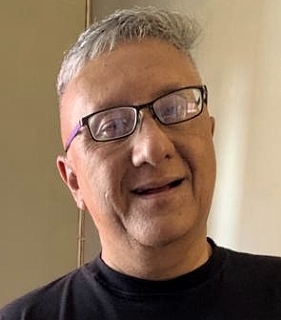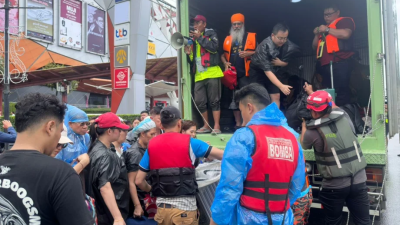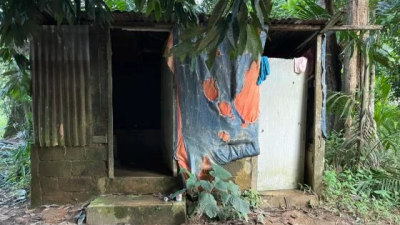
By Mohsin Abdullah
With speculation of a snap election gaining momentum, Umno has been talking tough against Bersatu on the thorny issue of seat allocation, saying it will not only contest all its traditional seats but also recapture the seats won by Bersatu in the 2018 polls.
But some political observers are asking if Umno's strong position on the matter is only limited to Bersatu or does it also apply to Umno's partner in Muafakat National, PAS.
Ilham Center CEO Mohd Azlan Zainal says Umno appears to have a simple and direct formula on seat allocation, which is "all seats it won previously belong to them."
Judging from Umno rhetorics, "previously" may not mean just seats the party won in 2018, but also before that!
However, the once strongest Malay party in the country may not get all the seats it is eyeing in GE15.
Negotiations on seat allocation is always tough between coalition partners, and even more daunting this time around, considering Umno is in three coalitions – Perikatan Nasional, Muafakat Nasional and let's not forget also Barisan Nasional.
For sure, gone are the days when Umno would easily get BN component parties to agree, for it to have the lion's share of seats to contest in every general election, until Pakatan Harapan ended the coalition's rule of more than six decades in 2018.
As the two biggest Malay parties, Umno and PAS will be gunning for the lion's share of Malay seats in rural and urban Malaysia in GE15, despite being allies in Perikatan and Muafakat.
With their rich history and track record, both parties have good grounds to back their demands.
Recently, a news portal quoted a political analyst as suggesting that one way to break the impasse between the two parties on seat allocation is for Umno to be given the bulk of federal seats and in return, the party makes way for PAS to contest more state seats.
This plan would mean that in the event Muafakat-Perikatan winning the general election, Umno would helm the federal government while PAS would govern in many of the Peninsular states.
At present, PAS rules Kelantan and Terengganu while helming the Perikatan Nasional government in Kedah.
Long-time PAS watcher Mohd Sayuti Omar, while agreeing that such a proposal can avoid acrimony and disputes between the two parties, is quick to point out that PAS sees itself as a party strong enough to capture Putrajaya, not just confined to running state governments.
He reckons that given its strong base of support, PAS "ought to demand 40 to 50 federal seats" to contest in GE15.
Sayuti says Umno may relent into ceding a significant number of parliamentary seats to PAS as it would also want the same favor returned for state seats which would enable the party to govern some states, along with PAS.
PAS members and supporters on the ground strongly feel the party must not play second fiddle to Umno, a sentiment which is growing thicker as the party's leaders now hold various ministerial and GLC positions in the federal government.
Both Umno and PAS have one thing in common: a strong conviction that they can defeat PH and win the spoils in GE15 to form the next federal government.
Thus, seat allocation remains a critical issue for PAS and Umno as the PM post and plum positions in the government will go to the party winning the most seats.
But, as Sayuti has warned, if the seat negotiations are not handled with care, both within Perikatan and Muafakat, the parties concerned may well pay a heavy price at the ballot box.
He expects Umno and PAS to be dominant forces in Perikatan's negotiations on seat allocation based on the number of MPs in their fold.
Bersatu and Azmin Ali's factions are not considered equals to Umno-PAS.
"During negotiations between Muafakat Nasional and Bersatu as well as the PKR splinter group led by Azmin, it is Umno and PAS that should dominate. I feel Bersatu and the Azmin group will be left behind," says Sayuti.
The jostling for seats between PAS and Umno does mean PM Tan Sri Muhyiddin Yassin, who is also Bersatu president, will be sidelined or reduced to a fringe role.
As Azlan sees it, Umno and PAS will ride on the popularity of Muhyiddin, thus will need his support to woo Malay voters especially.
"While Muhyiddin is expected to get their (PAS and Umno) support, it's hard to say if the two parties will support Bersatu (candidates). And the big question remains: Will Umno and PAS still want Muhyiddin as PM if Perikatan wins the polls with the two parties getting the most seats?" asks Azlan.
But Umno "wants" Muhyiddin to return to the party. Its deputy president Datuk Seri Mohamad Hasan is on record saying it would be "better" for the Bersatu president to return to Umno as "he will become prime minister that is supported by a big party with many MPs."
Mohamad went on to say, "It will be easier and we will not have problems when we face an election or discuss seat allocation because everything will be in Umno."
In GE14, Bersatu contested 52 federal seats and won 12. That number swelled to 30 after 18 Umno MPs crossed to Bersatu.
Umno has made it clear it wants back the 18 seats and will contest them in the next GE.
As if that is not problematic enough for Bersatu, only six of those who won federal seats on Bersatu ticket in 2018 remain with Muhyiddin today. The remaining six, led by Tun Dr Mahathir Mohamad, have now formed an independent block to topple Muhyiddin's government.
"Umno feels that it can win big this time without Bersatu, and have the upper hand against PAS in Muafakat Nasional," says Azlan.
However, Ilham Center's Azlan does not expect PAS to give up any of the seats it won in GE14. Hence in the current situation, the negotiations over parliamentary seats between Umno and PAS may well result in a deadlock.
Leaders from both parties have been downplaying the "problem", claiming things are going on smoothly and a formula will be worked out soon.
But serious obstacles remain as Umno attempts to regain what they see as their right.
"As far as Umno is concerned, the large number of seats won by PAS in GE14 were held by them (Umno) in GE13, and the party lost those seats two years ago as a result of three-cornered fights which benefited PAS," according to Azlan.
Describing PAS-Umno's negotiations on seat allocation as fiery is an understatement, given the high stakes of power and positions that come with winning the general election.
Azlan, like Sayuti, says the only viable compromise for the two parties to avoid another round of multi cornered fights would be "to give the space at federal level to BN-helmed Umno with PAS concentrating on the states, especially the ones already governed by them."
Both Umno-PAS along with Bersatu will have a chance to showcase their goodwill towards one another in the impending by-election in Slim River on August 29 following the death of state assemblyman Datuk Mohd Khusairi Abdul Talib from Umno.
In GE14, the late Khusairi defeated Bersatu and PAS candidates and all eyes are on whether the two parties will give way to Umno to defend the seat against PH.
The by-election can be used to measure the level of cooperation (between Umno-PAS and Bersatu) or as an indicator on how their GE seat negotiations are progressing.
"Chances are Bersatu will make way for Umno to defend the Slim River seat despite contesting the seat under the Pakatan Harapan banner in GE14," says Azlan.
That makes sense as Slim River is an Umno stronghold after all, with the late Khusairi retaining the seat for four terms on a BN ticket.
Apart from seat allocation, another poser would be under what banner would the current government contest in GE15.
Would it be Perikatan Nasional or Muafakat Nasional? Or will it be Barisan Nasional, which for now is the only registered coalition the government has?
Perhaps the Slim River by-election will provide an indication.
(Mohsin Abdullah is a veteran journalist and now a freelancer who writes about this, that and everything else.)
ADVERTISEMENT
ADVERTISEMENT


































